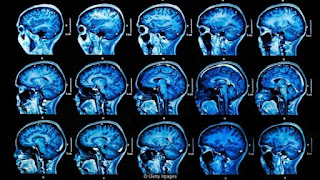Acute Disseminated Encephalomyelitis (ADEM)
Overview
Acute Disseminated Encephalomyelitis (ADEM) is a brief but
intense attack of inflammation (swelling) in the brain and spinal cord and
occasionally the optic nerves that damages the brain’s myelin (the white
coating of nerve fibers). Other terms used to refer to ADEM include
post-infectious encephalomyelitis and immune-mediated encephalomyelitis.
ADEM is sometimes difficult to distinguish from multiplesclerosis (MS) because the symptoms common to both "demyelinating"
disorders include loss of vision, weakness, numbness and loss of balance. Both
ADEM and MS involve immune-mediated responses to myelin in the brain and spinal
cord.
What causes ADEM?
The cause of ADEM is not clear but in more than half of the
cases, symptoms appear following a viral or bacterial infection, usually a sore
throat or cough and very rarely following vaccination. ADEM is thought to be an
autoimmune condition where the body’s immune system mistakenly identifies its
own healthy cells and tissues as foreign and mounts an attack against them.
This attack results in inflammation.
Most cases of ADEM begin about 7 to 14 days after an infection or up to
three months following a vaccination. In some cases of ADEM, no preceding event
is identified.
#Alzheimers2018 will be a great platform to present your research work in the field of Neurodegenerative Diseases... Register via https://bit.ly/2HiY83e to be a part of the conference.
#Alzheimers2018 will be a great platform to present your research work in the field of Neurodegenerative Diseases... Register via https://bit.ly/2HiY83e to be a part of the conference.




Comments
Post a Comment